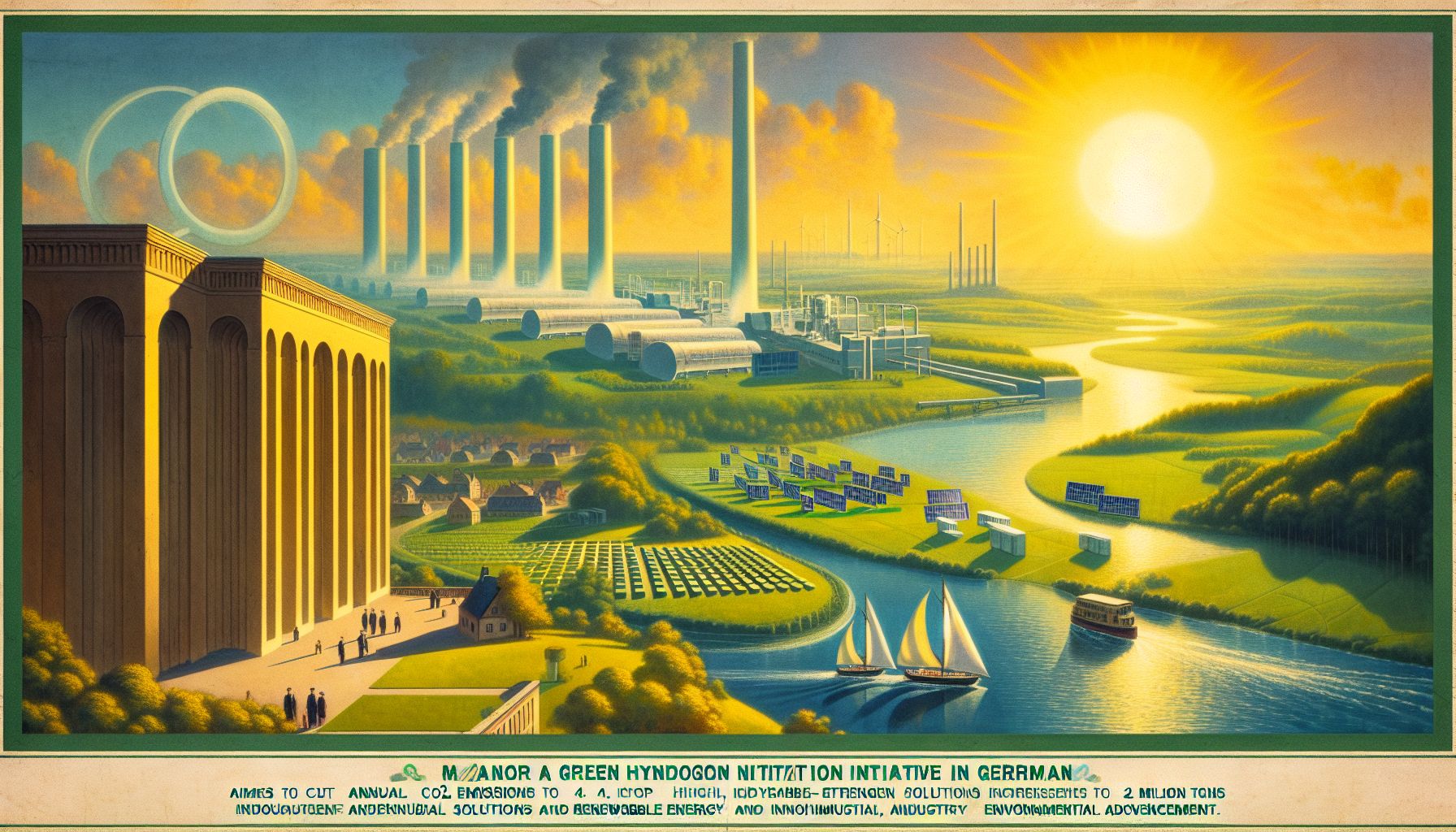Germany Launches Major Green Hydrogen Initiative with Project Anker

Copenhagen, Friday, 17 January 2025.
Project Anker in Germany aims to cut CO₂ by 2.4 million tons annually, emphasizing renewable energy and innovative hydrogen solutions for industrial and environmental progress.
Strategic Location and Initial Capacity
Located in Sande, near the deepwater port of Wilhelmshaven in Lower Saxony, Germany, Project Anker represents a significant advancement in green hydrogen production [1][2]. The facility, launched on January 16, 2025, through a partnership between Copenhagen Infrastructure Partners (CIP) and Friesen Elektra Green Energy AG, will begin with an electrolysis capacity of 400 MW [2][3]. The project has been strategically positioned near the future German hydrogen core network to maximize distribution efficiency [3].
Production Goals and Environmental Impact
The facility is designed to produce 80,000 tons of green hydrogen annually [2][3], primarily serving key German industries including steel, chemicals, and the transport sector [3]. By replacing fossil fuels with green hydrogen, Project Anker aims to achieve a substantial environmental impact, reducing CO₂ emissions by up to 2.4 million tons annually - equivalent to the emissions of approximately 340,000 households [1][2][3].
Renewable Energy Integration
Project Anker’s operations will be powered entirely by renewable energy from the grid, utilizing a combination of offshore and onshore wind, as well as solar energy [1][3]. This commitment to renewable power sources ensures the hydrogen produced truly qualifies as ‘green,’ as the electrolysis process splits hydrogen from water using carbon-free energy resources [3].
Future Expansion and Economic Impact
The project’s developers have outlined ambitious plans for expansion, with the capacity expected to double to 800 MW in future development phases [1][2]. According to Felix Pahl, Partner at CIP, the project will contribute significantly to Germany’s carbon-neutral objectives [2]. Christian Gätje, CFO of Friesen Elektra, has emphasized that this collaboration marks a crucial step in establishing one of Germany’s premier hydrogen production sites [2]. The initiative is also expected to create new jobs in Lower Saxony, fostering regional economic growth [3].

